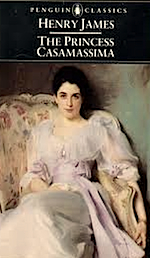By MICHAEL LEVENSON [Slate] – Pleasure Bound follows Foucault in claiming that respectable Victorianism had sex leaking out of every decorous pore. Its special claim is that two subcultures—one around Rossetti, one around Burton—were sites of an erotic bohemianism that rose to challenge and finally to defeat the upright followers of the Society for the Suppression of Vice. The Rossetti circle—a network of family members, fellow painters, critics, and poets as well as female models, plucked from lives that were meager or worse—not only generated a London avant-garde, a precursor to the confrontational modernisms of the coming decades, but also risky experiments in living. The first half of the book is a speedy tour through familiar scenes of indulgence, Rossetti among the prostitutes and models, Swinburne in theatrical intoxicated revelry. Continue reading “· ‘Victorian sex’: Not your great-great-grandfather’s oxymoron.” »
Wednesday, March 23, 2011
By JOSH ROGIN [Foreign Policy] – The U.S. military does not know when it will hand off control of the intervention in Libya to an international coalition, or whether a transfer of power will allow it to reduce its role in the war, according to the Navy’s top military officer.
Adm. Gary Roughead, the Chief of Naval Operations, said that he has received no guidance on the path ahead for command and control of the no-fly zone, no-drive zone, no-sail zone, arms embargo enforcement, and any other missions currently being managed by U.S. Africom Commander Gen. Carter Ham, who is in Germany. NATO has been battling internally over whether to take command, while the French government’s latest proposal is to set up a “political steering committee” made of Western and Arab foreign ministers. Continue reading “· The Tripoli school of driving: take the wheel or crash and burn.” »
Wednesday, March 23, 2011
WILLIAM SKIDELSKY [The Observer] – Stefan Collini is an exemplary essay writer who combines great stylistic elegance with absolute ruthlessness when it comes to dissecting sloppy thought. These virtues are much to the fore in That’s Offensive!…
Collini’s concern here is to analyse just one form of modern censorship (or, perhaps more accurately, self-censorship), one that may not strike many liberal readers as obvious, or even particularly important. This is the idea that, out of concern not to give “offence”, one should refrain from criticising ideas, beliefs or practices that one regards as wrong… Continue reading “· Civility: Truth plus respect plus offense equals offense?” »
Wednesday, March 23, 2011
By ILLIA DELIO [US Catholic] – The approach to Christ I am describing has been called panentheism: God is in all things, and all things are in God, but God is more than all things. God is greater than the sum of everything because God is incomprehensible. You can’t conflate the uncreated and the created…
We’ve become too analytical. Our approach is about law: Do good, avoid evil. But the mystic is one who, through prayer, enters into the mystery of God as love. Christian life is first of all a mystery, the mystery that the incredible, incomprehensible love of God is the source of all that we are.
The mystical way is one of vision. Continue reading “· How mystics enter into mystery.” »
 By BRUCE STERLING [Alamut] – It’s a rather rare phenomenon for an established medium to die. If media make it past their Golden Vaporware stage, they usually expand wildly in their early days and then shrink back to some protective niche as they are challenged by later and more highly evolved competitors. Radio didn’t kill newspapers, TV didn’t kill radio or movies, video and cable didn’t kill broadcast network TV; they just all jostled around seeking a more perfect app.
By BRUCE STERLING [Alamut] – It’s a rather rare phenomenon for an established medium to die. If media make it past their Golden Vaporware stage, they usually expand wildly in their early days and then shrink back to some protective niche as they are challenged by later and more highly evolved competitors. Radio didn’t kill newspapers, TV didn’t kill radio or movies, video and cable didn’t kill broadcast network TV; they just all jostled around seeking a more perfect app.
But some media do, in fact, perish. Such as: the phenakistoscope. The teleharmonium. The Edison wax cylinder. The stereopticon. The Panorama. Early 20th century electric searchlight spectacles. Morton Heilig’s early virtual reality. Telefon Hirmondo. The various species of magic lantern. The pneumatic transfer tubes that once riddled the underground of Chicago. Was the Antikythera Device a medium? How about the Big Character Poster Democracy Wall in Peking in the early 80s?
Continue reading “· Googling the phenakistoscope and other dead media.” »
Website – HOWTHELIGHTGETSIN is back with over 250 thought-provoking events and a relevant theme: New Gods: icons and ideas in a changed world. Are the great narratives that have built and sustained the West under threat? And, if so, what are the new gods that will replace them?
Among the 2011 guests will be Susan Greenfield, Colin Blakemore, Zygmunt Bauman, Bonnie Greer, Ted Honderich, Gideon Rachman, Rana Mitter, Mary Ann Sieghart, Daniel Cohn-Bendit, Angie Hobbs, Polly Toynbee, Simon Armitage, Lauren Booth, Leela Ghandi, Tessa Jowell, Mary Midgley, Mary Warnock, Bryan Appleyard, David Aaronovitch and many more. We’ll be releasing tickets to these events over the coming weeks, but in the meantime we’ve released Earlybird Tickets to a handful of Philosophy Sessions.
Continue reading “· Event: How the light gets in Hay.” »
By JOHN SEMLEY [Walrus] – Born 03/22/1931 (stardate unstipulated), William Shatner grew up in Montreal’s mostly Anglophone Notre-Dame-de-Grâce neighbourhood. His childhood nickname: “Toughie.” The image of him as grade school roustabout, bobbing around NDG’s tree-lined boulevards with a chip on his prepubescent shoulder: impossible to resist. His father, Joseph, a Jewish immigrant who came to Canada from Eastern Europe at age fourteen, worked in the schmatte business, tailoring cheap suits for working-class Montrealers. His mother, Anne, was an elocution teacher who enrolled Toughie in the Dorothy Davis School for Actors, a conservatory for would-be thespians run out of a local basement, when he was just seven or eight. From there, it was Baron Byng and West Hill for high school, McGill for a degree in commerce, radio plays, local theatre, and then Stratford.
Much of the persona Shatner would develop — onstage, off, and in between — is indebted to his training as a Shakespearean actor. (The Shakespearean and the Shatnerian are closely, maybe inextricably, linked.) Continue reading “· William Shatner, boldly going right through the scenery.” »
By THE EDITORS [The Nation] – The language of the UN resolution, while it forbids “foreign occupation,” is so broadly worded that many argue it amounts to an open-ended declaration of war against Libya. As is usually the case with military action, it’s easy to make the argument for war with Libya and to begin hostilities; it’s impossible to know when or how the conflict will end.
Indeed, there is a worrying dimension to this intervention, in that it reflects a mindset that associates US foreign policy, whether alone or as part of an allied force, with heroic crusades to bring down the bad guys. But it is exactly that mindset that has done so much damage in the Middle East over the years and that has saddled us with the costly burdens of two ongoing wars in Muslim lands. And Washington’s support for military action in Libya, on avowedly humanitarian grounds, should call into question ever more sharply the cynical American acquiescence in brutal suppression of peaceful demonstrations in Bahrain.
Continue reading “· How Benghazi looks from under Manhattan’s no-fly zone.” »
By M. CHALAPATHI RAU [Triveni] – To me, who was thinking only of an inner disturbance, the Armenian Street was the street of adventure, giving to that part of Madras City the look of a cathedral town. The cathedrals passed by, and then the merchant houses. The taxidermist’s shop spran to life on this day with dead animals glaring limply. I went up the steps of the Young Men’s Indian Association, stood outside a room, and scrawled my name on a scrap of paper. I went in, with trepidation but with an air of assurance, and on light feet.
Continue reading “· The life of a poet: Madras, 1931.” »
SHAKESPEARE’S ‘DARK LADY’ WILL BE in the spotlight all next week at a small, private bilingual school in western France as Chavagnes International College celebrates ‘Shakespeare week’. The event will include a series of lectures, performances and presentations featuring Peter Bassano, the new Music Director of City of Rochester Symphony Orchestra.
Continue reading “· Event: A week of Shakespeare in France.” »
By JONATHAN MILLER [Channel 4 News ] – News that Western – and possibly Arab – warplanes were now authorised to strike Gaddafi’s advancing army – and possibly bomb air bases and command posts in the capital and other cities – was not going to play well in Tripoli. We were beginning to brace ourselves.
For the first time, at one of the dire Government news conferences, every journalist in town was present and attentive. The Government Minister said that all the Libyan armed forces wanted was to protect civilians too. “We care about our people and we care about the territorial integrity of our country,” he said.The Libyan government had just told the UN Secretary General’s Special Representative that they were ready – “immediately” – to call a ceasefire to talk, he insisted, but that they needed an interlocutor. I asked whether the Government felt ambushed by the vote.
The Minister was in the middle of answering my question when we first heard the rabble.
Continue reading “· In Libya, the banality of state-sponsored show biz.” »
By STEVEN LAGERFELD [Wilson Quarterly] – So let me introduce myself. I am a wristwatch. Or, more accurately, a wristwatch maker. Okay, so I’m really the editor of a print magazine—the media world’s equivalent of a wristwatch.
Now, if you’re a wristwatch-maker and cell phones come along, you have some choices to make. You could go into the cell phone business. But that doesn’t seem like a very good idea. Or you could drastically reduce the quality and price of your watches—dumb them down—in order to sell more of them. Also not a good idea. Actually, it looks like it’s really not such a bad thing to be a Rolex in a cell phone world. A fancy watch isn’t just a device for telling time. But I don’t think I’d want to be a mass-market watch, like Timex.
Continue reading “· A ticking metaphor taped to an editor! Stand back. Way back.” »
By COLIN MURPHY [Le Monde Diplomatique] – Gary Mitchell was an unlikely playwright. Though “the Troubles” (as the Northern Irish conflict is known) has produced an extensive body of artistic work, none of it has come from where Mitchell comes from. That is an area north of Belfast called Rathcoole. In 1965, when he was born, Rathcoole was an area of mixed religion and social class. But by the mid 1970s the population had fallen by half, and it had become a garrison of working-class (and unemployed) loyalism, dominated by paramilitary organisations such as the Ulster Defence Association, or UDA.
Mitchell’s first encounter with the UDA came in 1974 when he attempted to cross a barricade set up at the entrance to Rathcoole, during the Loyalist Workers’ Strike, in order to visit some friends. “Outside Rathcoole are Taigs,” the UDA told him. “These Taigs will get you and they will hurt you, or worse.”
Continue reading “· In Rathcoole, a fear of the Taigs in the dark.” »
By GEOFF BRUMFIEL [Nature] – The television and various news sources are clogged with radiation numbers and experts trying to explain them. Unfortunately the result seems to be a confusing tangle of data that is difficult to understand.
The most fundamental problem seems to be the rampant switching from micro to millisieverts. As a science reporter I love the metric system, but I do wonder if the public can easily understand that a change in radiation from 5 millisieverts per hour to 1,000 microsieverts per hour is actually a five-fold decrease in exposure rates?
Continue reading “· Reporters lost in a fog of radioactivity data.” »
Wednesday, March 16, 2011
 By MICHAEL KNOX BERAN [City Journal] – [Lionel] Tilling’s hostility to the social imagination is nowhere more evident than in the fourth essay in The Liberal Imagination, a meditation on Henry James’s 1886 novel The Princess Casamassima in which Trilling fingers a line of nineteenth-century novels “defined as a group by the character and circumstance of their heroes . . . Stendhal’s The Red and the Black, Balzac’s Père Goriot and Lost Illusions, Dickens’s Great Expectations, Flaubert’s Sentimental Education.” The hero of these novels is a character Trilling calls the “Young Man from the Provinces,” a romantic adventurer who sets out to master the big city, Paris or London or New York.
By MICHAEL KNOX BERAN [City Journal] – [Lionel] Tilling’s hostility to the social imagination is nowhere more evident than in the fourth essay in The Liberal Imagination, a meditation on Henry James’s 1886 novel The Princess Casamassima in which Trilling fingers a line of nineteenth-century novels “defined as a group by the character and circumstance of their heroes . . . Stendhal’s The Red and the Black, Balzac’s Père Goriot and Lost Illusions, Dickens’s Great Expectations, Flaubert’s Sentimental Education.” The hero of these novels is a character Trilling calls the “Young Man from the Provinces,” a romantic adventurer who sets out to master the big city, Paris or London or New York.
Trilling said that the young man from the provinces was a creature of his age, one that stretched “from the late years of the eighteenth century through the early years of the twentieth.” This was a period, he later wrote in Sincerity and Authenticity, when the West was undergoing the “extreme revision of traditional modes of communal organization which gave rise to the entity that now figures in men’s minds under the name society.” Trilling cited the historian Peter Laslett’s scholarship, which evoked “the minute scale of life, the small size of human groups, before the coming of industry,” as evidence of how greatly premodern communities differed from “the groups that are characteristic of modern mass society, which did not begin to come into being until the middle and the late eighteenth centuries when factories were established.”
Continue reading “· Lionel Trilling’s bright lights, big city, mutated people.” »
























